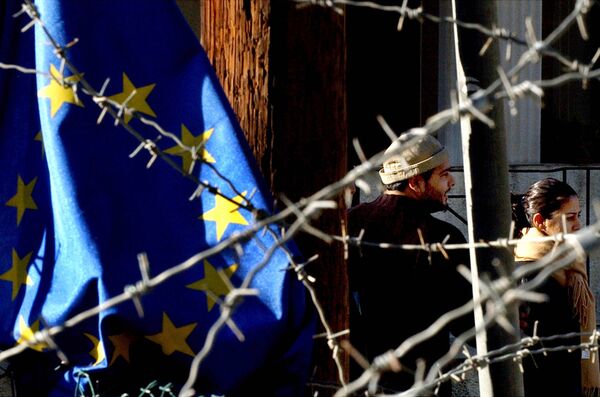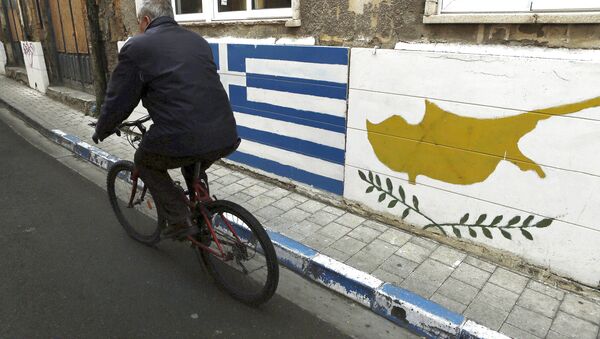Although Akinci has effectively suspended the reunification process due to the passing of a law in southern Cyprus that makes commemorating the 1950 referendum to join with Greece compulsory in school — he says the requirement "sows the seeds of division" among young people in Cyprus. He has urged UN Secretary General Antonio Guterres to compel the Greek Cypriot government to repeal the law.
Are Reunification Talks Over? Akinci Walks Out Over Enosis Referendum https://t.co/nZiU48dk1q #Cyprus #politics #news pic.twitter.com/vMcE9Zm3jZ
— CyprusNewsReport.Com (@cnrcy) February 16, 2017
Some Greek Cypriot party leaders questioned the need for the law, since the plebiscite — in which over 95 percent of Greek Cypriots voted to enter a union with Greece — is already taught and discussed in schools. However, most consider Turkish Cypriot representation of the law distorted and misleading.
Negotiations have been ongoing in Geneva since the start of January, and have begun to focus on the sensitive issue of how to ensure the island's Greek and Turkish communities feel secure when the UN buffer zone between the two portions of the island is rescinded.
Λυπούμαι ειλικρινά για την κατάληξη της σημερινής συνάντησης με τον ΤΚ ηγέτη κ. Ακιντζί https://t.co/4BGTrh4eB0
— Nicos Anastasiades (@AnastasiadesCY) February 16, 2017
Tweet: 'I am sincerely sorry about the outcome of today's meeting with Mr. Akinci'
Political risk analysts at the Eurasia Group have by implication suggested Turkey's "unwillingness to compromise on security issues" may be the real cause of new Turkish Cypriot intransigence on reunification, and have downgraded the likelihood of a reunification deal this year to 35 percent from 55 percent as a result.
In essence, Turkish Cypriots, a minority on the island, wish to retain the Turkish troops presence, and intervention rights, but this is flatly rejected by the Greek Cypriot side. The issue of the island's defense has long been a roadblock to resolution, in particular the web of "guarantees" currently in operation; the 1960 Treaty of Guarantee established Greece, Turkey and the United Kingdom as guarantors of Cyprian security and territorial integrity, and reserved the right of the guarantors to interfere in island's affairs if a threat is posed to the country's independence.

The system means the country is effectively quartered; the self-declared Republic of Northern Cyprus, the Greek-dominated Cyprus Republic, the UN buffer zone and Britain's Sovereign Base Areas of Akrotiri and Dhekelia.
Sami Dayioglu, former Minister of Agriculture and Natural Resources in the self-proclaimed Turkish Republic of Northern Cyprus previously told Sputnik the continued presence of British bases in Cyprus is a particular sticking point for Turkish Cypriots.
"The current process involves not only Cypriots, but also guarantor countries, which affect the situation and have their own interests in the region that often contradict those of the Cyprus Republic. It is unclear what will happen to the territories under the control of Great Britain. If we are talking about a sovereign and independent Republic of Cyprus, there shouldn't be any British military bases on the island," Dayioglu said.

Others have also expressed concerns about the reunification deal being discussed by Cypriot leaders. Professor Andreas Theophanous, President of the Cyprus Center for European & International Affairs, said the majority of Cypriots were less than enamoured with the proposals.
"The proposals would create three separate governments of equal standing — southern, northern and central. I find it impossible to imagine how such a governmental structure could work in the eurozone. Cypriots are unimpressed with the deal, with most thinking it will just make the situation worse," Professor Theophanous told Sputnik.
Both sides are scheduled to meet in Geneva next month to address security concerns, although whether this meeting will take place is uncertain.




